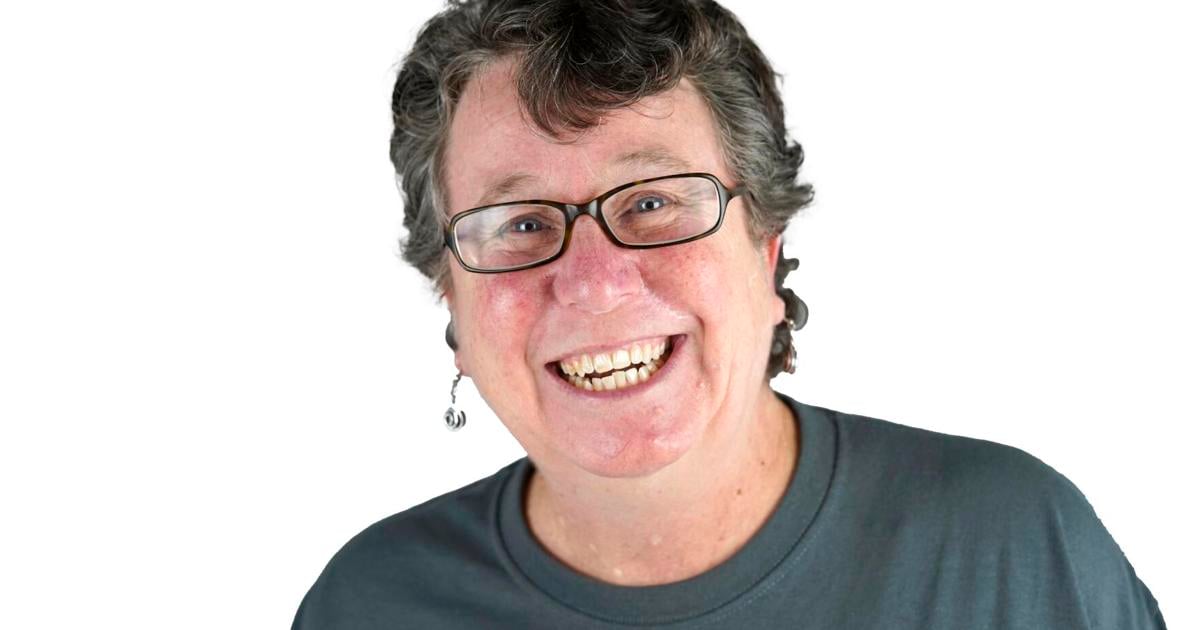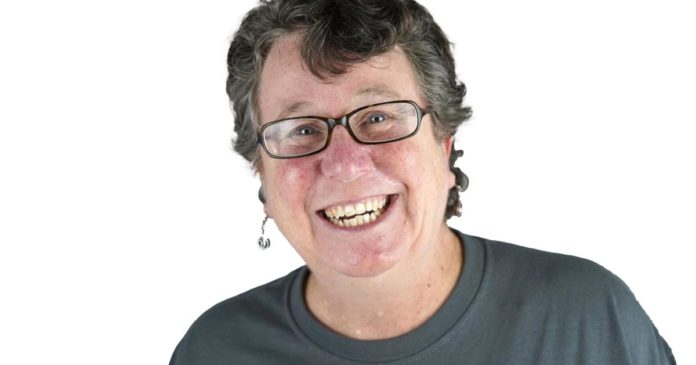
PITTSFIELD — Lisanne Finston holds master’s degrees in social work and divinity, spent 20 years running a nonprofit in New Jersey that finds innovative ways to deal with hunger and homelessness, and is a minister in the Methodist Church.
Eight years ago, Finston brought all these credentials to the Berkshires when she became executive director of Gould Farm in Monterey, the country’s oldest residential community charged with helping adults with mental health and related challenges move toward recovery and independence by living and working together and receiving clinical care.
Will and Agnes Gould founded the facility in 1913. It includes a working farm, several residence buildings and some for-profit enterprises, including a bakery and the recently closed Roadside Cafe on Route 23.
We spoke with the New Jersey native recently about her background, her beliefs, Gould Farm’s mission, and when the nonprofit expects to open a new Roadside Cafe to replace the one that closed last month.
Q: You have an interesting backstory that began when you majored in international relations in college [American University]. Were you planning on becoming a diplomat?
A: I was leaning towards doing development in parts of the world that were underdeveloped and struggling with the ravages of poverty and all that kind of stuff.
But, I came to recognize during my time in D.C. that we were facing many of the same issues here at home and that going abroad to solve problems wasn’t culturally astute and that there were things that I could do right here in the U.S.
Q: What led you to social work and then to the ministry?
A: For me, there’s this pretty strong pull to see my life as vocation, as opposed to work and personal life … that all are connected.
I was kind of struck by a quote from theologian Frederick Buechner, who says, “Vocation is where your passion meets the world’s greatest need.” So, for me, I think that time in D.C. and my sort of formative young adult years were a journey of finding my vocations and where my passions and interests met the needs of the world that could be met.
What often connects us to vocations and getting involved and engaged in, whether it’s human services or it’s spiritual practices, is that tug of meaning and purpose. There’s that tug of personal identity and all the struggles and challenges and vulnerabilities and how we find these ways to connect our experience and challenges with others. Through that process we find a sense of connection, a sense of belonging, a sense of community and a sense of hope.
As a young person … I was coming out at the time. I had friends who were gay and who were experiencing the ravages of AIDS then. So, there were a lot of things going on for me that sort of led me to see the connections between personal experience and passions, interests and strengths and needs of the world. So, I moved from D.C. [back to New Jersey], and entered the seminary and set out on that path.
Q: It’s interesting that you chose the seminary at a time [the 1980s] when religious congregations weren’t as welcoming to the gay community as they are today.
A: Back then, it was interesting. … I was in the Methodist Church, and I had family members who were in the Methodist Church. My sort of experience in the Methodist Church was with people who were fairly progressive, so that the recognition was that there was no hang-up on sexual orientation in my small circle of the church in New Jersey. … Some Protestant churches have moved forward and become inclusive and thrown off the shackles of being stuck in that lens of moral judgment, but the Methodists have not.
I spent some time working in a local parish and then have spent most of my career working in settings that are alternative settings from the local church because of that reality. The Methodist Church still does not ordain openly gay and lesbian folks.
Q: Had you come out when you were ordained as a minister?
A: Well, again, I was in the New Jersey conference of the Methodist Church. We had a kind of don’t ask, don’t tell kind of approach to it at the time. There was a definite sense that we just needed to move forward in bringing people into the ministry that were, or seemed to be, interested, and had the gifts and talents to be engaged in the ministry.
Q: Are you still an ordained minister?
A: I’m still ordained, and I’m still officially connected in the Methodist system. I’m officially appointed to be working at Gould Farm in the eyes of the Methodist Church. The Methodist Church sees my work at Gould Farm as a valid expression of my ministry.
Q: Is Gould Farm connected to the Methodist Church?
A: No, it’s nonsectarian.
Q: Why did Will and Agnes Gould believe that helping people with mental health challenges was best done in a community setting, where everyone worked and lived together?
A: Remember, back 100-plus years ago, we didn’t understand mental illness like we do today. … So, in the early days, what Will and Agnes created was a passionate and caring community where people could come and find a respite from the challenges of a stressful social order — often urban settings. And they wanted to create a community that was rooted in the beauty and the healing powers of nature and work.
He [Will Gould] was something of a farmer and a church person himself [a minister’s son], so, I think they were really living out their vocation. They didn’t have any children, so, they created an extended family.
Q: How does Gould Farm’s program compare to a person undergoing the traditional model receiving outpatient services from a mental health professional?
A: We’re this kind of in-between space between community-based outpatient services and hospitalization. We provide for the people who have been in and out of the hospital, for example, with recurring mental health crises who then try to find traditional community-based outpatient services to help them remain stable and able to manage on their own in the community.
What often happens is, there is this disconnect, and outpatient services are not able to sustain the kinds of recovery skills and strengths that people need long term. Hospitalizations have become increasingly short term and are just basically stabilizing people. So, there is this gap that happens, and we fill that gap.
Q: What attracted you to this job?
A: After so many years of doing crisis work and working with folks who are so disenfranchised and marginalized because of mental health challenges and serious mental illness, I was really fascinated by this model approach. It’s a really coming together for me of my own personal interests and things that I find meaningful, like living in a community and being part of a team of people who are really focused on and really dedicated to a common cause. …
We live in our community at Gould Farm in a way that, interestingly enough, I think faith communities struggle to live out.
Q: What do you mean?
A: I think that faith communities are organized around, to use a term that is often used, love; living out practices of love in the world, community, justice, all those things. There’s a way in which faith communities have become, for many of us in our society today, secondary on Sunday to soccer or whatever kind of activities and pursuits.
What happens at Gould Farm is a total experience of living out the values and principles of community.
Q: You’re planning to reopen the Roadside Cafe in a new building in the same location. When do you think that will happen?
A: We’re hopeful that we can raise enough money over the next few months to, hopefully, begin construction in 2022. So, Roadside will be back! Bigger and better than ever.
Q: You sound like a politician when you say that.
A: [Laughs} Well, build back better.







